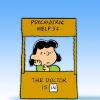-
Posts
527 -
Joined
-
Last visited
-
Days Won
1
Reputation Activity
-
 hj2012 got a reaction from bananabear in Review for my SOP (Sociology)
hj2012 got a reaction from bananabear in Review for my SOP (Sociology)
Hi,
While these samples are for anthropology, not sociology, you might still find it useful to read through for examples on how to organize a statement of purpose. A few thoughts:
1. Forefront your future dissertation research. Your introduction paragraph should give the reader a good understanding of the kind of research that you want to do, the methods you might employ, and why your topic is important. Why is the intersection of work/labor, gender, and mental health an interesting area of inquiry?
2. I wouldn't bash your undergrad education. Try to spin everything positively. Instead of stressing your dissatisfaction, say something like, "My undergraduate training in psychology at the University of X gave me the opportunity to become acquainted with A, B, C and furthered my interest in Z and Y. In order to strengthen my academic training and gain international experience, I continued my studies at University blah blah.." That you worked and saved up for two years to fund your grad studies is irrelevant, unless this work experience somehow contributed to your research trajectory (e.g. "After graduating from University of X with honors, I worked for two years as a health professional at Y hospital, an experience that furthered my interest in the intersection of gendered labor and mental health.")
3. You're changing fields from psychology to sociology. Why? This should be addressed. Why do you want to pursue a sociological line of inquiry instead of a psychological one? There's also very little in this statement that indicates that you understand the differences between the two fields, or how you might use your training in psychology to further an innovative interdisciplinary project in the field of sociology.
Hope this helps.
-
 hj2012 got a reaction from neat in What are my chances of getting into a history PhD program?
hj2012 got a reaction from neat in What are my chances of getting into a history PhD program?
If you're entering TFA, you will likely have very little free time to prepare for graduate school, and you might find your plans for the future evolving alongside your corps experience. In all likelihood, the most you'll be able to manage while working 60+ hours a week is to study for and take the GREs.
Are you primarily focused on 20th C history? As pudewen mentioned, French is the "obvious" language, but this will depend on your interests. You might consider applying to do a Fulbright in a West/Central African country after TFA, or look into MA programs to better refine your interests.
-
 hj2012 got a reaction from Duns Eith in What could I do with my program?
hj2012 got a reaction from Duns Eith in What could I do with my program?
If you choose to reapply, I would definitely think strategically and tread carefully. It will likely be difficult for you to gain admission to "a better program" without a letter of recommendation from your current school attesting that you are not leaving due to your inability to flourish in doctoral-level work. Staying in your current program may become more difficult -- as you very well might strain relationships -- if they hear that you are trying to leave. I wouldn't take the decision to reapply so lightly.
-
 hj2012 got a reaction from mdirgantara in Where to apply for an MA in English (US/UK)?
hj2012 got a reaction from mdirgantara in Where to apply for an MA in English (US/UK)?
I see. Yes, as an international student I think it might be especially helpful for you to enter an MA program first. If you're relying on outside funding, I think Columbia, UVa, Northwestern NYU, Georgetown and Wake Forest would be good places to consider.
-
 hj2012 got a reaction from Sigaba in What could I do with my program?
hj2012 got a reaction from Sigaba in What could I do with my program?
If you choose to reapply, I would definitely think strategically and tread carefully. It will likely be difficult for you to gain admission to "a better program" without a letter of recommendation from your current school attesting that you are not leaving due to your inability to flourish in doctoral-level work. Staying in your current program may become more difficult -- as you very well might strain relationships -- if they hear that you are trying to leave. I wouldn't take the decision to reapply so lightly.
-
 hj2012 got a reaction from _kita in What could I do with my program?
hj2012 got a reaction from _kita in What could I do with my program?
If you choose to reapply, I would definitely think strategically and tread carefully. It will likely be difficult for you to gain admission to "a better program" without a letter of recommendation from your current school attesting that you are not leaving due to your inability to flourish in doctoral-level work. Staying in your current program may become more difficult -- as you very well might strain relationships -- if they hear that you are trying to leave. I wouldn't take the decision to reapply so lightly.
-
 hj2012 got a reaction from Glasperlenspieler in What could I do with my program?
hj2012 got a reaction from Glasperlenspieler in What could I do with my program?
If you choose to reapply, I would definitely think strategically and tread carefully. It will likely be difficult for you to gain admission to "a better program" without a letter of recommendation from your current school attesting that you are not leaving due to your inability to flourish in doctoral-level work. Staying in your current program may become more difficult -- as you very well might strain relationships -- if they hear that you are trying to leave. I wouldn't take the decision to reapply so lightly.
-
 hj2012 got a reaction from ba2923 in Art history PhD programs w/ focus on theory
hj2012 got a reaction from ba2923 in Art history PhD programs w/ focus on theory
While breadth is very important, I would encourage you to narrow your focus for the purpose of PhD applications and think about the language that will be most useful to that body of work. If you're thinking about pursuing jobs in the academy, they are still for the most part "divided" by areas of the world. Essentially all PhD programs are going to require some language component, so if you're starting with nothing I'd consider taking classes at the local community college or something. My sense is that French makes most sense for African/African diaspora/Caribbean, but you should confirm with your advisors.
-
 hj2012 got a reaction from metaphysicaldog in 2018 Applicants
hj2012 got a reaction from metaphysicaldog in 2018 Applicants
Non-fiction programs - especially full-residency programs with stipends - are absolutely not receiving fewer applications than PhD programs. Wisconsin-Madison's numbers are not outliers. Creative nonfiction programs are extremely competitive, as the opportunity to have 3 years to work on a book project is very compelling even to professional journalists, editors, and writers. For example, I have a friend who recently transitioned from a full-time job as an investigative reporter to an MFA program with far less prestige than the Iowa Writer's Workshop. She has years of experience, an excellent portfolio, and is represented by a great agency in NYC. This is your competition. Therefore, MFA non-fiction programs are a poor "back-up" choice to the PhD. In fact, considering the competitiveness of fully funded MFAs, you might want to conceive of it as the other way around!
Beyond admissions statistics, however, it might behoove you to think carefully about what your overall aims are, as @Warelin also suggested. Grad school is a means to an end, and my concern is that you seem to want to enter graduate school for the sake of it, which is not the best plan of action. If you want to be a literary scholar, commit to PhD programs, even if it means multiple application seasons (which, by the way, is not rare!). If you ultimately dream about being a nonfiction writer, commit to improving your craft and your CV, and ditch the PhD apps - they won't help you get there.
-
 hj2012 got a reaction from Sigaba in Choosing PhD Topic
hj2012 got a reaction from Sigaba in Choosing PhD Topic
While long-term thinking is good, you should also consider the likelihood of reaching your most immediate goal, which is acceptance to a fully-funded PhD program in the United States. Not to be a total party pooper, but what you've written thus far does not inspire confidence that you understand what is required to gain acceptance to these highly selective programs.
First, PhD programs -- at least in the U.S. context, with which I am more familiar -- do not take students and train them from scratch. That is, if you don't already have training in statistics and mathematical modeling, it is difficult to imagine a program accepting you to pursue #2. Likewise for #1 if you have no significant research experience using or engaging with ethnographic theories and methods. If I were you, I would choose the research agenda for which you are already most likely to be successful in the short-to-medium range term.
Second, rather than thinking about just a bounded research topic, it might also behoove you to think about disciplinary constraints and training. That is, PhD programs also seek to mold you into a disciplinarian -- i.e. a political scientist, anthropologist, sociologist, historian, etc. To be accepted into a PhD program, you must be able to explain your project in the language and norms of the discipline that you enter. I encourage you to stay away from "Big History" and "cliodynamics" in your SOP, as these are still decidedly outside of mainstream academia.
Topic #1 seems to be most immediately legible IMO, though you should also think more specifically about the population you want to specialize in (i.e. what area of the world?). For Topic #2, you might want to look through the literature on world systems theory or browse the leadership of the Political Economy of the World-System section of the American Sociological Association, as those scholars might be more sympathetic to a project such as yours.
-
 hj2012 got a reaction from museum_geek in What programs am I missing? (Human-animal relationships)
hj2012 got a reaction from museum_geek in What programs am I missing? (Human-animal relationships)
Grad school is all about the process of specialization. In fact, the whole point of PhD training is to become "a X person" with a deep, rigorous knowledge of a particular place, community, group, or way of life. You need to indicate in your SOP the rough outlines of a project that will entail site-specific fieldwork, and once you get in, you will need to build expertise in the area in which you will conduct fieldwork (through language, courses, etc) and prove it through qualifying exams. Most PhD programs will require you to do 3-4 fields in somewhat recognizable categories, one of which will likely be an area-focused list such as "Anthropology of China" or an outside list such as "History of Latin America & the Caribbean." If you can't commit to this process or you don't like the idea of specialization, an anthropology PhD is probably not right for you.
Also, I wouldn't base your SOP on the cumulative work of senior scholars, because it's comparing apples to oranges. You'd be hard-pressed to find an anthropologist whose dissertation research was about India, Mexico, and England, though their career might later encompass multiple places. Think about it this way: you are learning a method (which includes specialization and a commitment to local knowledge) that you can later apply to other sites you may wish to study. But you will never be admitted to a PhD program without demonstrating commitment to a first project -- the dissertation is difficult enough to complete, even for those with single-minded focus!
FYI -- multi-sited ethnographies are not usually comparative in nature. Building on @hats, they might compare the trajectory of a single group of migrants across multiple locales, track the production of commodity X, or explore the imagination and implementation of international governance code Y.
-
 hj2012 got a reaction from hats in Art history PhD programs w/ focus on theory
hj2012 got a reaction from hats in Art history PhD programs w/ focus on theory
While breadth is very important, I would encourage you to narrow your focus for the purpose of PhD applications and think about the language that will be most useful to that body of work. If you're thinking about pursuing jobs in the academy, they are still for the most part "divided" by areas of the world. Essentially all PhD programs are going to require some language component, so if you're starting with nothing I'd consider taking classes at the local community college or something. My sense is that French makes most sense for African/African diaspora/Caribbean, but you should confirm with your advisors.
-
 hj2012 got a reaction from hats in Curious how people are responding in diversity statements when they aren't obvious forms of diversity (e.g., race, gender)
hj2012 got a reaction from hats in Curious how people are responding in diversity statements when they aren't obvious forms of diversity (e.g., race, gender)
This PPT presentation might be helpful: https://grad.uchicago.edu/sites/default/files/career-resources/DiversityStatement_Presentation.pdf
Rather than "specific forms of diversity that academia wants," it might be more useful to think of the reality of diversity within universities and how you will attend to challenges that diversity inevitably raises. Even if you do not have a demonstrated commitment to underprivileged communities, you will be (and likely have been) teaching, collaborating, and interacting with groups and individuals who come from enormously different backgrounds. Universities essentially want to ensure that you will not be a liability as a co-worker and educator, and that you have at least put some thought into pondering the very real challenges of teaching and researching across diversity. They want to make sure that you are aware that you will be teaching students and working with individuals who come from different backgrounds, and that a one-size-fits-all model is not always the most effective. The diversity statement is also a way to show that you are capable of considering alternative perspectives and can show some level of sensitivity, tact, and empathy.
What has equipped you to effectively communicate with individuals who are different than you, and what are some strategies to build connections across difference? How would you pedagogically approach a classroom with students who come from different linguistic, national, class, and racial backgrounds, and what steps might you take to ensure that everyone benefits from the diversity of experiences in the room? What is your approach to mentoring students who might not be as familiar with North American academic norms (e.g. first generation students, international students, etc)? These are questions that I think everyone applying to academic jobs should at least consider.
-
 hj2012 got a reaction from nushi in Choosing PhD Topic
hj2012 got a reaction from nushi in Choosing PhD Topic
While long-term thinking is good, you should also consider the likelihood of reaching your most immediate goal, which is acceptance to a fully-funded PhD program in the United States. Not to be a total party pooper, but what you've written thus far does not inspire confidence that you understand what is required to gain acceptance to these highly selective programs.
First, PhD programs -- at least in the U.S. context, with which I am more familiar -- do not take students and train them from scratch. That is, if you don't already have training in statistics and mathematical modeling, it is difficult to imagine a program accepting you to pursue #2. Likewise for #1 if you have no significant research experience using or engaging with ethnographic theories and methods. If I were you, I would choose the research agenda for which you are already most likely to be successful in the short-to-medium range term.
Second, rather than thinking about just a bounded research topic, it might also behoove you to think about disciplinary constraints and training. That is, PhD programs also seek to mold you into a disciplinarian -- i.e. a political scientist, anthropologist, sociologist, historian, etc. To be accepted into a PhD program, you must be able to explain your project in the language and norms of the discipline that you enter. I encourage you to stay away from "Big History" and "cliodynamics" in your SOP, as these are still decidedly outside of mainstream academia.
Topic #1 seems to be most immediately legible IMO, though you should also think more specifically about the population you want to specialize in (i.e. what area of the world?). For Topic #2, you might want to look through the literature on world systems theory or browse the leadership of the Political Economy of the World-System section of the American Sociological Association, as those scholars might be more sympathetic to a project such as yours.
-
 hj2012 got a reaction from rising_star in Curious how people are responding in diversity statements when they aren't obvious forms of diversity (e.g., race, gender)
hj2012 got a reaction from rising_star in Curious how people are responding in diversity statements when they aren't obvious forms of diversity (e.g., race, gender)
This PPT presentation might be helpful: https://grad.uchicago.edu/sites/default/files/career-resources/DiversityStatement_Presentation.pdf
Rather than "specific forms of diversity that academia wants," it might be more useful to think of the reality of diversity within universities and how you will attend to challenges that diversity inevitably raises. Even if you do not have a demonstrated commitment to underprivileged communities, you will be (and likely have been) teaching, collaborating, and interacting with groups and individuals who come from enormously different backgrounds. Universities essentially want to ensure that you will not be a liability as a co-worker and educator, and that you have at least put some thought into pondering the very real challenges of teaching and researching across diversity. They want to make sure that you are aware that you will be teaching students and working with individuals who come from different backgrounds, and that a one-size-fits-all model is not always the most effective. The diversity statement is also a way to show that you are capable of considering alternative perspectives and can show some level of sensitivity, tact, and empathy.
What has equipped you to effectively communicate with individuals who are different than you, and what are some strategies to build connections across difference? How would you pedagogically approach a classroom with students who come from different linguistic, national, class, and racial backgrounds, and what steps might you take to ensure that everyone benefits from the diversity of experiences in the room? What is your approach to mentoring students who might not be as familiar with North American academic norms (e.g. first generation students, international students, etc)? These are questions that I think everyone applying to academic jobs should at least consider.
-
 hj2012 got a reaction from m7orbust in What are my chances of getting into a history PhD program?
hj2012 got a reaction from m7orbust in What are my chances of getting into a history PhD program?
If you're entering TFA, you will likely have very little free time to prepare for graduate school, and you might find your plans for the future evolving alongside your corps experience. In all likelihood, the most you'll be able to manage while working 60+ hours a week is to study for and take the GREs.
Are you primarily focused on 20th C history? As pudewen mentioned, French is the "obvious" language, but this will depend on your interests. You might consider applying to do a Fulbright in a West/Central African country after TFA, or look into MA programs to better refine your interests.
-
 hj2012 reacted to TakeruK in sexual harassment?
hj2012 reacted to TakeruK in sexual harassment?
I think I will have to disagree with you here, for the reasons I already said above. To clarify, I am not saying that the complainant must immediately go to the nearest Title IX reporter and file a report every single time they feel uncomfortable. If the complainant is comfortable doing so, I do believe directly discussing the matter with the other party is probably the most expedient and best path forward. It could lead to better mutual understanding and better interactions in the future. That's the goal.
But, if the complainant is uncomfortable around the other person, for whatever reason (e.g. the other person is their superior or they don't feel safe etc.) then they should not have to confront or further interact with the person that is causing the problem. This is the job of the Title IX office, to mediate and intervene in these situations. Again, I think too many people believe that being investigated by Title IX office is the same as criminal prosecution. It is not. The whole reason Title IX exists is to allow an in-between that is a little more formal than the direct conversation mentioned above and a legal charge against the offender. Note that sometimes the outcome of a Title IX investigation is to recommend legal action to be taken. Title IX investigations aren't criminal charges on themselves. Reporting an incident to the Title IX office is **not** an accusation of sexual harassment. It is a report of an incident. Nothing more unless it turns out to be something more.
If you place the burden on the person feeling uncomfortable to first have to talk to the other party and also "prove" that they are being made to feel uncomfortable, you are going to end up with a lot of unreported cases on campus and an unwelcome environment. Not every report made results in an action. If someone made a report involving you to the Title IX office but there is nothing that needs to be done, you might not even know about it. So while I definitely agree that being falsely accused is traumatic and stigmatizing, when the system works properly, this should not happen. An investigation only occurs if there is enough evidence to warrant one.
Finally, I don't think it's our place to decide for anyone here whether or not the OP was "actually" sexually harassed or not. You mention morality and I think my moral code would encourage me to believe people when they say they are feeling uncomfortable or unsafe. They don't need to "justify" it. They are the only one that can define what uncomfortable/unsafe means to them. I think it is much more immoral to engage in practices that create an unwelcome environment on campus. This is why I think it is important to have offices like the Title IX office on campus where people can make reports. In terms of what would result in a better campus environment, I would rather the office have reports that aren't "justified" (and so no action is taken) than for serious misconduct to go unreported. I think it is more moral to encourage people to make reports when they feel uncomfortable than to make everyone believe that they must justify all of their feelings.
Sorry for the misunderstanding. Thanks for pointing this out.
No, as I said in the first post, Title IX is a US law and Canada does not have the same wording. Instead, there are different policies and laws that protect against the same types of misconduct. We just don't have a Title IX office. Many of the other resources that people (including you) suggested also exist in Canada. And as I wrote in the first post, but in case it didn't show up clearly, the additional resources that would exist at most Canadian universities would be the labour union representing students (if the role in which the student was acting was unionized---e.g. some places only unionize TAs and not researchers while others do both, so whether this falls under your collective agreement depends on whether or not you have union representation). These grievance procedures generally encourage direct communication (as we wrote about above) but in cases of sexual harassment or other if the complainant is uncomfortable, there is a procedure to escalate to department or university level procedures. If that is not resolved, since education and employment are provincial jurisdictions, students could go to the Province's Labour Board or Human Rights Tribunal. For criminal activity, the case goes right to law enforcement (as with Title IX in the USA).
(My further discussion into Title IX was only in response to the general parts of rphilos' response)
-
 hj2012 reacted to rphilos in sexual harassment?
hj2012 reacted to rphilos in sexual harassment?
Based on the details that OP has now revealed, I agree that she was sexually harassed. However, your suggestion that you should "not have to justify" charges (related to sexual harassment or anything else) before making them because the justice system will conduct an investigation is grossly immoral. If someone feels uncomfortable because they were asked out by someone they're not interested in, or if they misinterpret an off-color joke, it would be seriously wrong to make any sort of complaint against that person, even if they are eventually vindicated. Merely being accused of sexual harassment is a traumatic and stigmatizing experience. You should only make accusations if you are justified in doing so. (In OP's case she is justified.)
In my description of what constitutes sexual harassment, I mentioned "persistent unwanted advances" as one kind of sexual harassment. I said sexual harassment could also involve "an explicit or implicit threat, inappropriate touching, or something along those lines," which could all be "single occurrence."
-
 hj2012 reacted to TakeruK in sexual harassment?
hj2012 reacted to TakeruK in sexual harassment?
I think I understand where you are getting at, but I believe this type of advice is very bad advice because of the way power dynamics work in academia, thinking like this will led to very few things being reported. In many cases, whether it's sexual harassment or other types of bad behaviour, it is easy for a grad student to incorrectly blame themselves or assume that the behaviour is "normal" or "expected".
When an incident like this happens and someone thinks they need to make a Title IX report, the complainant (to use the policy's term) should not have to justify or investigate or determine whether or not the action they are complaining about fits whatever the definition of "harassment" you want to use. I think a lot of people misunderstand what actually happens with a Title IX report.
The point of a Title IX office and a Title IX coordinator is to collect these reports/complaints/whatever-you-want-to-call-them. If anyone feels that something is amiss, they should make a report/complaint. Making a report does not "ruin someone's life" (see the many cases in the news where people who are found guilty yet still continue to work) nor does it label someone as an offender. Making a report is exactly what it sounds like: you report it to some central office. If the Title IX coordinator decides that the report/information is actionable, then they will start and coordinate an investigation. This due process is what will determine if someone violated the policy and what actions needs to be taken. Note that sometimes, for small offenses, such as situations where someone just doesn't know the social norms, the "action" can simply be education or training. I will also note that often the worst offenders will use this excuse as a reason to behave badly.
For years, I worked as part of a group of grad students advising the Title IX office on policy education and outreach. So I know the process very well at my school (could be different at others). But, at our school, we always encourage people to say something if their "gut feeling" tells them something feels wrong. If it's not actually wrong, then no big deal. But if it is actually a problem, then no one can do anything unless information is collected. This goes back to my first paragraph: often, the people in positions of less power might assume that action X is okay even if it feels wrong. I believe it's far better to encourage people to report "X" to the Title IX office whenever it feels wrong, rather than to have to "investigate" it themselves to find out if it's wrong. The authority and responsibility to investigate lies with the Title IX investigators, not the complainant.
Finally, I would also have to disagree that harassment (or Title IX violations) must happen at least twice (or whatever you decide) to count. Harassment could be repeat occurrences, but it could also be one single severe occurrence. In addition, it could also be many moderate severity occurrences happening to five different people, but only once to each person. These are all things that the Title IX office should be aware of, and if people don't report "X" when it feels wrong, it may never proceed to investigation and the offender can harm a large number of students one at a time.
-
 hj2012 got a reaction from narple in Imposter's Syndrome and Languages
hj2012 got a reaction from narple in Imposter's Syndrome and Languages
How's your Chinese/Japanese? Depending on your interests, those languages might be just as important / worth getting a head start on.
Viki has a new "learn mode" for Korean dramas that is helpful for improving listening / word recognition. I like lang-8.com, which is a multi-language blogging platform: you write blog posts in Korean (or whatever other language you want to learn), and native speakers correct the post for you. It's really helpful, since there's a feedback mechanism for improvement. Is there a Sejong Institute or other Korean teaching school nearby? They often offer night classes. From my understanding the level of instruction is not that high, but it might be worth looking into just to keep yourself from forgetting.
-
 hj2012 reacted to TakeruK in Any have experience attending grad school with a partner?
hj2012 reacted to TakeruK in Any have experience attending grad school with a partner?
When I applied to MSc programs, my partner and I were not married and we had similar concerns as you. Later, when applying to PhD programs, my partner and I were married and we still had similar concerns. The second time, they were even bigger concerns because we were moving from Canada to the US, so work authorization for my spouse was also a tricky thing to get. In the end, it did all work out though.
Here's what we did for both rounds of applications in terms of choosing a location that would work for both of us. My spouse has a generally flexible line of work (non-academic) and any small town (~100,000 people or so) would have options, but of course, the bigger the city, the larger the pool of applicants. The only job-related constraints would be language (some places in Canada require French) and immigration policies (for places outside of Canada). Instead of just job opportunities, we were also considering our personal preferences on where we would like to live too!
We started by determining what our own goals are (career and otherwise), for ourselves and for each other. We discussed short term and long term wishes and how we wanted to balance them. And we talked about what our major concerns were about grad school and the academic career path.
Ultimately, we came up with a plan that ensured that both of us were happy. Although I was the one going to grad school, we viewed this as something we were doing together for the good of our family. So, I only applied to schools in locations that were good for both of us. Logistically, the way we did it was for each of us to compile our own lists of places we would like to go to. Then, we looked at each other's lists and we each had veto power (e.g. I might veto places that didn't have research that fit me or I wouldn't enjoy the city and my spouse might veto places that didn't suit their interests). The places that were on both our lists went to the top. We kept an open mind at this stage---neither of us vetoed places that might not sound great initially, but we would at least visit and see what it's like.
As for long term goals, both of our main desires were to set us both up so that we can both have careers in a specific geographical region (close to our families). We know that was where we would want our children to grow up. Our main concern was that the academic job market is brutal and most academics seem to have to move to wherever the jobs were. In addition, while some people we know got TT jobs right after graduation, and a few after 1 postdoc, the norm is 2 or 3 postdocs before a TT job. The nightmare scenario we wanted to avoid was that we would go on the TT job hunt, choose a less-than-ideal postdoc thinking that it would set us up for a good job later, but then go on another postdoc and another etc... In short, while we had long term big picture goals in mind, we also didn't want to spend our 20s and 30s only living for the future and not being able to enjoy the present.
We came up with a strategy to avoid our worst fears. First, we both decided that while academia would be a great career path for me, we are not going to have the "TT job or bust" mindset. Next, we decided that every position I take from then on (at the PhD application stage) would have to be a top-tier type position, or something that really sets us up very well for moving back to our geographical area. So, this meant that when applying to PhD programs, I only applied to top schools with the plan that if I only got into second-tier schools, it would make the odds of a TT job in our geographical region of choice very slim and the two of us would be better off if we followed a different career path. When applying to postdocs, I followed the same idea.
The second strategy was to choose a program that would allow me to develop useful non-academia job skills. Ultimately, we would both be happier in our geographical region and outside of academia than in academia but outside of our region of choice. In addition to programs that would allow me to develop useful skills, I generally favoured places that would have good brand name recognition for employers outside of academia. This second preference played a larger role in the "choosing which offer to accept" stage rather than the application stage, since nothing is sure when you're just applying.
Finally, the last strategy to combat our fears/worries was to make a commitment to ourselves. We decided that 10 years from the start of my PhD program (we'd be in our mid-30s), we will be in our geographical region of choice, no matter what. This was to alleviate the worries of chasing postdocs/TT jobs indefinitely and that we would be not living in the present enough. Although it was always true, making this commitment was a reminder to ourselves that we can just quit academia any time. For most grad students, we are achievement-seeking personalities and "quitting" might be hard to do. This promise to ourselves was a reminder that we can leave if we want to.
So with these ideas, we both agreed on 8 places to apply to. My spouse visited grad programs whenever possible. I made it clear to all the grad programs that this was a decision that both of us were making together. Many places directly reached out to my spouse to recruit her as well as me, which was very appreciated. After the applications decisions were made, my spouse and I ranked the offers. Our top three choices were the same, but most importantly, the top choice was the same for both of us. So that was how we decided.
If you want an update on where we are on our plans, we are now 5 years past the start of my PhD (i.e. halfway through our 10 year plan). I just graduated from my PhD last month and I have just started a postdoc this week. I ended up with a fellowship postdoc position in our geographic region of choice! Our hopes are that we will never have to move away again. However, we're still open to it if there's a really good (but temporary) opportunity for a second postdoc, but only if the opportunity provides increased chances for a permanent academic job in our current area and that increase is worth the move away from our families. If not, and if there turns out to be no more academic opportunities in our area, we'll find non-academic jobs and stay where we are
Good luck with your decision making process. If you want to discuss more personal issues, feel free to send me a PM. I can also provide more details via PM if that helps someone in a similar situation.
-
 hj2012 reacted to urbanfarmer in How the heck do I write a personal statement?
hj2012 reacted to urbanfarmer in How the heck do I write a personal statement?
Think of the SOP as being the thread that, in writing, ties all your materials together. As was stated by hj2012, they're not going to spend a ton of time reading everyone's 20-pg writing sample (probably)-- so convince them to. I started my SOP by giving a summary of my M.A. thesis (which was my writing sample), then had a paragraph talking about what my research interests are (how they related to my writing sample, and what I wanted to continue studying in the future), then had a few paragraphs explaining how my prior education and work experience made me qualified for a program, and how my research interests developed, then ended with a short paragraph about why I was applying to that specific program.
Look into programs a bit, and mix in your "real" reasons with some other ones. Do the classes look interesting? Do they have a good reputation for getting MA students into PhD programs? It's like applying to a job-- even though you're applying because you need to pay your rent, you also have to sound like you know a bit about the place and there's SOMETHING about it that's interesting to you. Feel free to also say, "I plan on pursuing my PhD, and X program seems like it will provide me with the mentorship and skills needed to succeed further in academia."
Don't worry about this being a place where you are writing something especially "new." Cover letters may catch an employer's interest with their content, but they're certainly not something that's ever "fun" to read-- and as hj2012 said... this basically is a cover letter.
-
 hj2012 got a reaction from lesabendio in How the heck do I write a personal statement?
hj2012 got a reaction from lesabendio in How the heck do I write a personal statement?
Is this a personal statement (which usually asks students to discuss their life experience, diversity, etc) or a statement of purpose? Assuming it is the latter, it may be helpful to think of the SOP as a cover letter for a job. No fluff about your childhood dreams, your burning desire to study literature, or a cutesy hook. Instead, be straightforward and professional because SOPs, like cover letters, are formulaic by nature. They start with a declaration of intent that succinctly describes your research and keywords, moves into your literary training and notable accomplishments, explains why your past experience undergirds your present research interests, and aligns your future goals with the strengths of the program under question.
The ability to write a compelling narrative account of your research program and scholarly development is an important skill you'll use again and again in grant applications, self-evaluation portfolios, and of course, on the job market. It is the "highlight reel" that, like a good cover letter, convinces the reader they want to know more about the applicant and actually spend the time to peruse the writing sample.
Hope this helps.
(Note: there may be more flexibility in terms of MA program SOPs - this advice is geared toward PhD program admissions.)
-
 hj2012 got a reaction from lit_nerd in How the heck do I write a personal statement?
hj2012 got a reaction from lit_nerd in How the heck do I write a personal statement?
Is this a personal statement (which usually asks students to discuss their life experience, diversity, etc) or a statement of purpose? Assuming it is the latter, it may be helpful to think of the SOP as a cover letter for a job. No fluff about your childhood dreams, your burning desire to study literature, or a cutesy hook. Instead, be straightforward and professional because SOPs, like cover letters, are formulaic by nature. They start with a declaration of intent that succinctly describes your research and keywords, moves into your literary training and notable accomplishments, explains why your past experience undergirds your present research interests, and aligns your future goals with the strengths of the program under question.
The ability to write a compelling narrative account of your research program and scholarly development is an important skill you'll use again and again in grant applications, self-evaluation portfolios, and of course, on the job market. It is the "highlight reel" that, like a good cover letter, convinces the reader they want to know more about the applicant and actually spend the time to peruse the writing sample.
Hope this helps.
(Note: there may be more flexibility in terms of MA program SOPs - this advice is geared toward PhD program admissions.)
-
 hj2012 got a reaction from punctilious in How the heck do I write a personal statement?
hj2012 got a reaction from punctilious in How the heck do I write a personal statement?
Is this a personal statement (which usually asks students to discuss their life experience, diversity, etc) or a statement of purpose? Assuming it is the latter, it may be helpful to think of the SOP as a cover letter for a job. No fluff about your childhood dreams, your burning desire to study literature, or a cutesy hook. Instead, be straightforward and professional because SOPs, like cover letters, are formulaic by nature. They start with a declaration of intent that succinctly describes your research and keywords, moves into your literary training and notable accomplishments, explains why your past experience undergirds your present research interests, and aligns your future goals with the strengths of the program under question.
The ability to write a compelling narrative account of your research program and scholarly development is an important skill you'll use again and again in grant applications, self-evaluation portfolios, and of course, on the job market. It is the "highlight reel" that, like a good cover letter, convinces the reader they want to know more about the applicant and actually spend the time to peruse the writing sample.
Hope this helps.
(Note: there may be more flexibility in terms of MA program SOPs - this advice is geared toward PhD program admissions.)
















